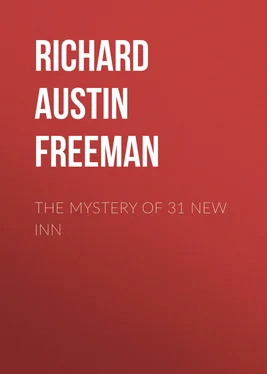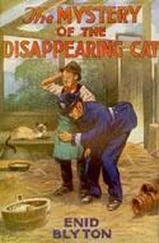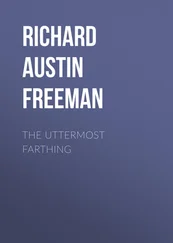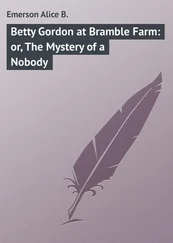Richard Austin Freeman - The Mystery of 31 New Inn
Здесь есть возможность читать онлайн «Richard Austin Freeman - The Mystery of 31 New Inn» — ознакомительный отрывок электронной книги совершенно бесплатно, а после прочтения отрывка купить полную версию. В некоторых случаях можно слушать аудио, скачать через торрент в формате fb2 и присутствует краткое содержание. Жанр: foreign_prose, Классический детектив, foreign_detective, foreign_antique, на английском языке. Описание произведения, (предисловие) а так же отзывы посетителей доступны на портале библиотеки ЛибКат.
- Название:The Mystery of 31 New Inn
- Автор:
- Жанр:
- Год:неизвестен
- ISBN:нет данных
- Рейтинг книги:4 / 5. Голосов: 1
-
Избранное:Добавить в избранное
- Отзывы:
-
Ваша оценка:
- 80
- 1
- 2
- 3
- 4
- 5
The Mystery of 31 New Inn: краткое содержание, описание и аннотация
Предлагаем к чтению аннотацию, описание, краткое содержание или предисловие (зависит от того, что написал сам автор книги «The Mystery of 31 New Inn»). Если вы не нашли необходимую информацию о книге — напишите в комментариях, мы постараемся отыскать её.
The Mystery of 31 New Inn — читать онлайн ознакомительный отрывок
Ниже представлен текст книги, разбитый по страницам. Система сохранения места последней прочитанной страницы, позволяет с удобством читать онлайн бесплатно книгу «The Mystery of 31 New Inn», без необходимости каждый раз заново искать на чём Вы остановились. Поставьте закладку, и сможете в любой момент перейти на страницу, на которой закончили чтение.
Интервал:
Закладка:
"Can't you send the coachman?" I asked.
She shook her head impatiently. "No, that is no use. I must wait until Mr. Weiss comes."
"That won't do," I said, sharply. "He will slip through our fingers while you are waiting. You must go and get that coffee at once and bring it to me as soon as it is ready. And I want a tumbler and some water."
She brought me a water-bottle and glass from the wash-stand and then, with a groan of despair, hurried from the room.
I lost no time in applying the remedies that I had to hand. Shaking out into the tumbler a few crystals of potassium permanganate, I filled it up with water and approached the patient. His stupor was profound. I shook him as roughly as was safe in his depressed condition, but elicited no resistance or responsive movement. As it seemed very doubtful whether he was capable of swallowing, I dared not take the risk of pouring the liquid into his mouth for fear of suffocating him. A stomach-tube would have solved the difficulty, but, of course, I had not one with me. I had, however, a mouth-speculum which also acted as a gag, and, having propped the patient's mouth open with this, I hastily slipped off one of the rubber tubes from my stethoscope and inserted into one end of it a vulcanite ear-speculum to serve as a funnel. Then, introducing the other end of the tube into the gullet as far as its length would permit, I cautiously poured a small quantity of the permanganate solution into the extemporized funnel. To my great relief a movement of the throat showed that the swallowing reflex still existed, and, thus encouraged, I poured down the tube as much of the fluid as I thought it wise to administer at one time.
The dose of permanganate that I had given was enough to neutralize any reasonable quantity of the poison that might yet remain in the stomach. I had next to deal with that portion of the drug which had already been absorbed and was exercising its poisonous effects. Taking my hypodermic case from my bag, I prepared in the syringe a full dose of atropine sulphate, which I injected forthwith into the unconscious man's arm. And that was all that I could do, so far as remedies were concerned, until the coffee arrived.
I cleaned and put away the syringe, washed the tube, and then, returning to the bedside, endeavoured to rouse the patient from his profound lethargy. But great care was necessary. A little injudicious roughness of handling, and that thready, flickering pulse might stop for ever; and yet it was almost certain that if he were not speedily aroused, his stupor would gradually deepen until it shaded off imperceptibly into death. I went to work very cautiously, moving his limbs about, flicking his face and chest with the corner of a wet towel, tickling the soles of his feet, and otherwise applying stimuli that were strong without being violent.
So occupied was I with my efforts to resuscitate my mysterious patient that I did not notice the opening of the door, and it was with something of a start that, happening to glance round, I perceived at the farther end of the room the shadowy figure of a man relieved by two spots of light reflected from his spectacles. How long he had been watching me I cannot say, but, when he saw that I had observed him, he came forward—though not very far—and I saw that he was Mr. Weiss.
"I am afraid," he said, "that you do not find my friend so well to-night?"
"So well!" I exclaimed. "I don't find him well at all. I am exceedingly anxious about him."
"You don't—er—anticipate anything of a—er—anything serious, I hope?"
"There is no need to anticipate," said I. "It is already about as serious as it can be. I think he might die at any moment."
"Good God!" he gasped. "You horrify me!"
He was not exaggerating. In his agitation, he stepped forward into the lighter part of the room, and I could see that his face was pale to ghastliness—except his nose and the adjacent red patches on his cheeks, which stood out in grotesquely hideous contrast. Presently, however, he recovered a little and said:
"I really think—at least I hope—that you take an unnecessarily serious view of his condition. He has been like this before, you know."
I felt pretty certain that he had not, but there was no use in discussing the question. I therefore replied, as I continued my efforts to rouse the patient:
"That may or may not be. But in any case there comes a last time; and it may have come now."
"I hope not," he said; "although I understand that these cases always end fatally sooner or later."
"What cases?" I asked.
"I was referring to sleeping sickness; but perhaps you have formed some other opinion as to the nature of this dreadful complaint."
I hesitated for a moment, and he continued: "As to your suggestion that his symptoms might be due to drugs, I think we may consider that as disposed of. He has been watched, practically without cessation since you came last, and, moreover, I have myself turned out the room and examined the bed and have not found a trace of any drug. Have you gone into the question of sleeping sickness?"
I looked at the man narrowly before answering, and distrusted him more than ever. But this was no time for reticence. My concern was with the patient and his present needs. After all, I was, as Thorndyke had said, a doctor, not a detective, and the circumstances called for straightforward speech and action on my part.
"I have considered that question," I said, "and have come to a perfectly definite conclusion. His symptoms are not those of sleeping sickness. They are in my opinion undoubtedly due to morphine poisoning."
"But my dear sir!" he exclaimed, "the thing is impossible! Haven't I just told you that he has been watched continuously?"
"I can only judge by the appearances that I find," I answered; and, seeing that he was about to offer fresh objections, I continued: "Don't let us waste precious time in discussion, or Mr. Graves may be dead before we have reached a conclusion. If you will hurry them up about the coffee that I asked for some time ago, I will take the other necessary measures, and perhaps we may manage to pull him round."
The rather brutal decision of my manner evidently daunted him. It must have been plain to him that I was not prepared to accept any explanation of the unconscious man's condition other than that of morphine poisoning; whence the inference was pretty plain that the alternatives were recovery or an inquest. Replying stiffly that I "must do as I thought best," he hurried from the room, leaving me to continue my efforts without further interruption.
For some time these efforts seemed to make no impression. The man lay as still and impassive as a corpse excepting for the slow, shallow and rather irregular breathing with its ominous accompanying rattle. But presently, by imperceptible degrees, signs of returning life began to make their appearance. A sharp slap on the cheek with the wet towel produced a sensible flicker of the eyelids; a similar slap on the chest was followed by a slight gasp. A pencil, drawn over the sole of the foot, occasioned a visible shrinking movement, and, on looking once more at the eyes, I detected a slight change that told me that the atropine was beginning to take effect.
This was very encouraging, and, so far, quite satisfactory, though it would have been premature to rejoice. I kept the patient carefully covered and maintained the process of gentle irritation, moving his limbs and shoulders, brushing his hair and generally bombarding his deadened senses with small but repeated stimuli. And under this treatment, the improvement continued so far that on my bawling a question into his ear he actually opened his eyes for an instant, though in another moment, the lids had sunk back into their former position.
Soon after this, Mr. Weiss re-entered the room, followed by Mrs. Schallibaum, who carried a small tray, on which were a jug of coffee, a jug of milk, a cup and saucer and a sugar basin.
Читать дальшеИнтервал:
Закладка:
Похожие книги на «The Mystery of 31 New Inn»
Представляем Вашему вниманию похожие книги на «The Mystery of 31 New Inn» списком для выбора. Мы отобрали схожую по названию и смыслу литературу в надежде предоставить читателям больше вариантов отыскать новые, интересные, ещё непрочитанные произведения.
Обсуждение, отзывы о книге «The Mystery of 31 New Inn» и просто собственные мнения читателей. Оставьте ваши комментарии, напишите, что Вы думаете о произведении, его смысле или главных героях. Укажите что конкретно понравилось, а что нет, и почему Вы так считаете.












